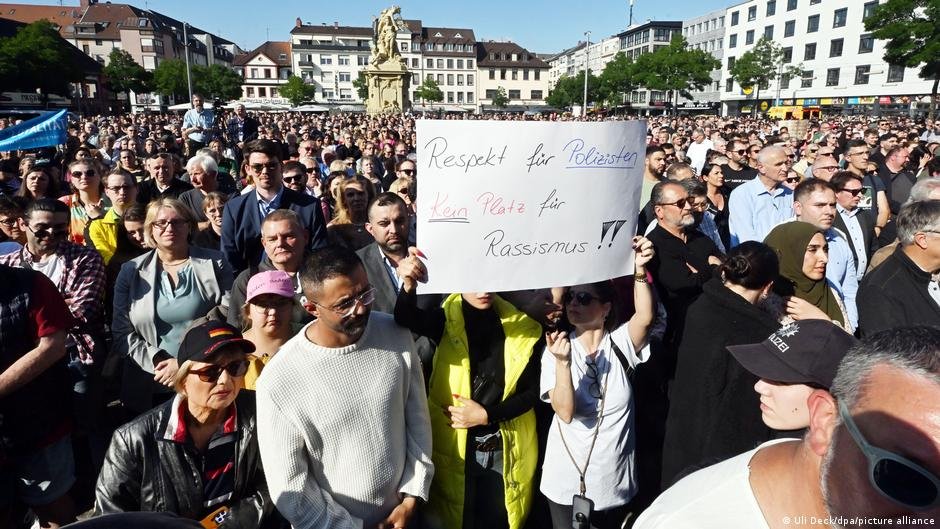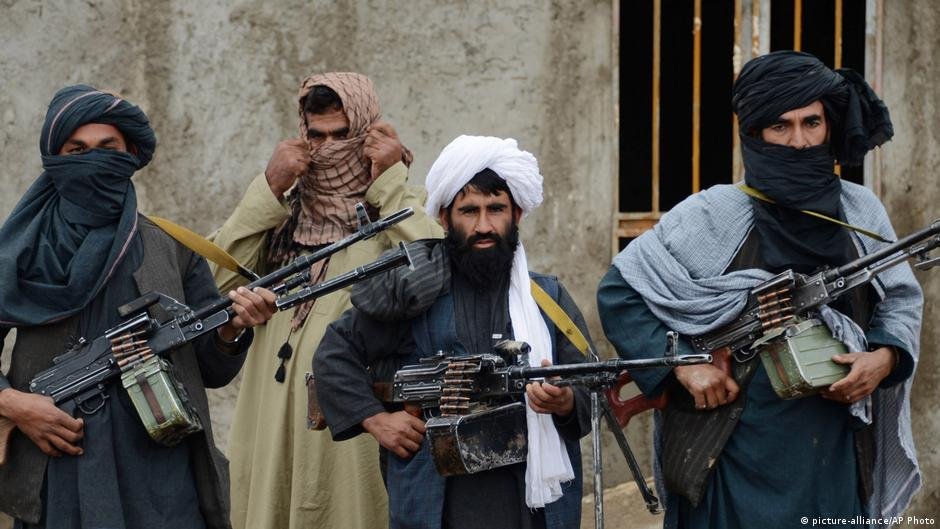A debate over deporting foreign nationals who commit serious crimes has been reignited in Germany after the fatal stabbing of a police officer in the city of Mannheim last week. The attacker was an Afghan national who had lived in Germany for almost 10 years.
Germany and other countries have seen a rise in far-right protests in recent months, in particular over the issue of migration. Some have also been anti-Islamic, requiring a greater presence of law enforcement.
Such demonstrations are permitted under Germany's free speech laws. However, not everyone agrees with the exercise of that freedom, especially when it leads to violence. Last week, during a rally held by the group Pax Europa (BPE) in the southwestern city of Mannheim, a police officer was stabbed and later lost his life.
BPE describes itself as an NGO dedicated to the aim of "protecting and preserving European values and liberties against political Islam."
Also read: Germany considering forced returns to Afghanistan: reports

'Islamist motive' behind attack
Authorities say they believe that there was an Islamist motive behind the deadly assault, even though the 25-year-old suspect reportedly had no criminal record, nor was he known to German law enforcement.
The man from Afghanistan had spent almost a decade in Germany, and after having his initial asylum application rejected, was later given limited leave to remain.
The suspect is currently in hospital after being shot by police as a result of the attack. He faces possible charges of murder, attempted murder and five counts of causing serious bodily harm.
The office of Germany's Federal Prosecutor confirmed that the working assumption is that he wanted to prevent critics of Islam from voicing their views and exercising their right to freedom of expression.
Also read: Who is eligible for Germany's Afghanistan reception program?
Deportations to Afghanistan
Politicians across Germany's political spectrum meanwhile have shared their reactions to the event:
Germany's Justice Minister Marco Buschmann wrote on X that he agreed that there were "clear indications of an Islamist motive" behind the attack.
While stressing the view that "Islam belongs to Germany, but Islamism does not," Buschmann added that "preventing and prosecuting such barbaric acts should be the highest priority for our security official and the judiciary."
Other politicians went further, suggesting lessons that should be learned from the attack.
Thorsten Frei, the parliamentary leader of the Christian Democrats (CDU) – the largest opposition party in the Bundestag – said that the government wasn't doing anything to deport criminal refugees and asylum seekers, especially Syrians and Afghans.
"In my view, this … proves the fact that there are significant factions of the federal government who evidently are not interested in seeking a solution to this issue," he told reporters.
Nationals of Afghanistan and Syria are currently exempt from being deported back to their home countries due to the security situation in those countries. Even if a deportation order has been issued, they cannot physically be taken back.
Also read: Austrian minister pushes EU to consider repatriations to Syria and Afghanistan
No recognition of Taliban government
Meanwhile, Interior Minister Nancy Faeser wrote on X that the suspect would face the full force of the law for this "murderous act."
Faeser added that the option of deporting asylum seekers convicted of serious crimes to Afghanistan was still being assessed on an ongoing basis, as were similar cases involving Syrians.
She stressed that Germany's own security concerns had to supersede any other security concerns in this context, including any potential threats that such deportees might face in their home countries.
However, Faeser also highlighted the fact that there were considerable issues when it comes to practicalities, especially in the case of Afghanistan and the Taliban regime, which is not recognized internationally.
Also read: Afghans at risk: Where to seek help
Afghanistan: rewards for violence?
While the majority of political parties support a similar stance to Faeser, the Greens – a junior coalition partner at the federal level – rejected her position.
The Greens spokesperson on interior affairs, Lamya Kaddor, said that sending anyone to Afghanistan who had been convicted of a crime in Germany would make little sense, as the Taliban government was not likely to enforce any punishment on them.
"In fact, they'd probably be rewarded instead," Kaddor said in an interview with Germany's ARD public broadcaster.
"Do we really want to establish diplomatic relationships with the Taliban regime in Afghanistan and provide them with funds to accept people back?," she said.

Interior ministry pleads for democratic values
CDU parliamentary leader Frei said these arguments were not valid.
"I am convinced that there are technical ways of dealing with it which don't involve recognition of the [Taliban] regime. Incidentally, we know that numerous Western countries maintain precisely such technical relationships" with the Taliban, said Frei.
"If you think it's not possible, it's because you don't want to."
With days to go to European election, during which far-right candidates are widely expected to increase their share of the vote significantly, German Foreign Minister Annalena Baerbock said that "society must not allow extremists to cause such divisions."
"I will not allow our democracy to be destroyed by hatred, hate speech, violence and deadly motivations," she told reporters.
Also read: What's changing in German immigration policy in 2024
With Reuters, AP, AFP, dpa
